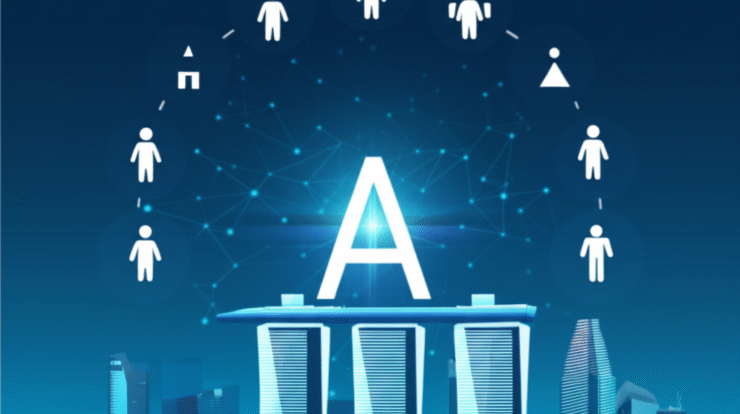
In today’s rapidly evolving world of technology, Artificial Intelligence (AI) has become both a catalyst for innovation and a source of ethical debate. As AI continues to shape industries, societies, and economies, the challenge lies in finding the right balance between progress and responsibility.
Singapore — a global hub of technology, policy innovation, and digital governance — is stepping forward as a pioneer in defining what safe and ethical AI should look like. By bringing together global tech giants under a unified vision for AI safety, Singapore is setting a powerful example for the rest of the world.
Singapore’s Vision for Safe and Responsible AI
Singapore has earned a global reputation for being a forward-thinking leader in both technology and regulation. Its government recognizes that while AI has immense potential to transform industries, enhance efficiency, and improve lives, it also carries significant risks if left unchecked.
At the heart of Singapore’s AI Safety Vision is a commitment to building trust — ensuring that AI serves humanity ethically, transparently, and securely. This vision combines technological progress with a strong moral compass.
Core Principles of Singapore’s AI Safety Framework
Singapore’s AI strategy is anchored on several key principles designed to make AI systems both powerful and responsible:
1. Transparency
AI systems should be explainable, understandable, and accessible. Developers are encouraged to create algorithms whose decision-making processes can be clearly interpreted by humans.
2. Fairness
Singapore promotes fairness by minimizing algorithmic bias and ensuring that AI systems do not reinforce social inequalities.
3. Accountability
Organizations deploying AI are held accountable for their systems’ outcomes. This ensures that responsibility cannot be deflected onto technology itself.
4. Safety and Reliability
AI must undergo rigorous testing to minimize risks and avoid unintended consequences.
5. Human-Centric Design
All AI technologies should be designed to enhance human decision-making, not replace it. Singapore’s approach ensures that humans remain at the center of technological evolution.
Global Tech Giants Rally Behind Singapore’s AI Vision
One of the most remarkable aspects of Singapore’s strategy is its ability to bring together some of the world’s most influential technology companies.
Corporations like Google, Microsoft, and IBM have expressed strong support for Singapore’s initiatives, recognizing the country’s pragmatic and ethical approach as a model for global AI governance.
These collaborations are not just symbolic — they are shaping practical outcomes in how companies approach responsible innovation and data-driven decision-making.
Why Global Companies Are Aligning with Singapore
Evolving Consumer Expectations
Modern consumers are more conscious of how AI affects their lives — from privacy to bias and transparency. Companies are realizing that adopting ethical AI practices helps build long-term trust and brand loyalty.
Anticipating Regulation
With governments worldwide tightening oversight on AI, aligning with Singapore’s standards allows companies to stay ahead of global regulatory trends and avoid compliance risks.
Innovation Through Collaboration
By partnering with Singapore, global tech firms gain access to a rich ecosystem of research institutions, start-ups, and policy experts. This fosters innovation that is both cutting-edge and responsible.
Global Market Advantage
Adhering to Singapore’s ethical standards strengthens corporate credibility, giving these firms a competitive edge in international markets that increasingly demand responsible AI.
Impact of Singapore’s AI Safety Vision
Singapore’s leadership in AI ethics has created ripple effects both domestically and globally.
Domestic Transformation
The AI safety vision has driven local growth in several areas:
- Talent Development: Through national programs, Singapore is investing heavily in training its workforce to manage and develop ethical AI systems.
- Startup Ecosystem: A robust regulatory framework encourages start-ups to innovate while adhering to ethical standards.
- Public Trust: Transparent communication and accountability have strengthened citizens’ confidence in the responsible use of AI.
Global Influence
Internationally, Singapore’s efforts serve as a model for countries seeking to establish their own AI frameworks.
Its AI Verify Foundation and partnerships with global tech players set benchmarks for ethical collaboration and shared responsibility.
The country’s balanced approach — combining innovation, ethics, and inclusivity — has made it a trusted voice in global discussions on AI governance.
The Road Ahead: Challenges and Opportunities
While Singapore’s progress is impressive, the journey toward universal AI safety is far from over. Several challenges remain on the horizon:
1. Rapid Technological Change
AI evolves faster than most policy frameworks can adapt. Governments and corporations must continuously update their guidelines to stay relevant.
2. Diverse Ethical Standards
AI ethics differ across cultures. Singapore’s approach of collaboration and dialogue aims to harmonize these varying perspectives into a more unified global understanding.
3. Resource Allocation
Ensuring that both financial and human resources are directed toward AI safety initiatives remains a significant challenge, especially for smaller enterprises.
4. Public Awareness
Building public literacy around AI is essential. A population that understands both the benefits and risks of AI will be better equipped to hold organizations accountable.
Looking Toward a Responsible AI Future
The alliance between Singapore and global technology leaders marks a turning point in how the world views AI. It shows that innovation and responsibility can — and must — coexist.
Singapore’s commitment to transparency, fairness, and human-centric AI sets a global precedent for the responsible advancement of technology.
By uniting industry giants under one ethical framework, Singapore is proving that the future of AI doesn’t just belong to engineers and developers — it belongs to everyone.
Conclusion: A Blueprint for Global AI Collaboration
Singapore’s AI Safety Vision is more than a national policy — it is a blueprint for how countries and corporations can work together to build a safe, ethical, and inclusive AI future.
By leading through collaboration rather than competition, Singapore is helping redefine the role of technology in society.
The nation’s efforts demonstrate that safeguarding AI is not just a regulatory task but a shared moral responsibility — one that determines whether technology will serve humanity or overshadow it.